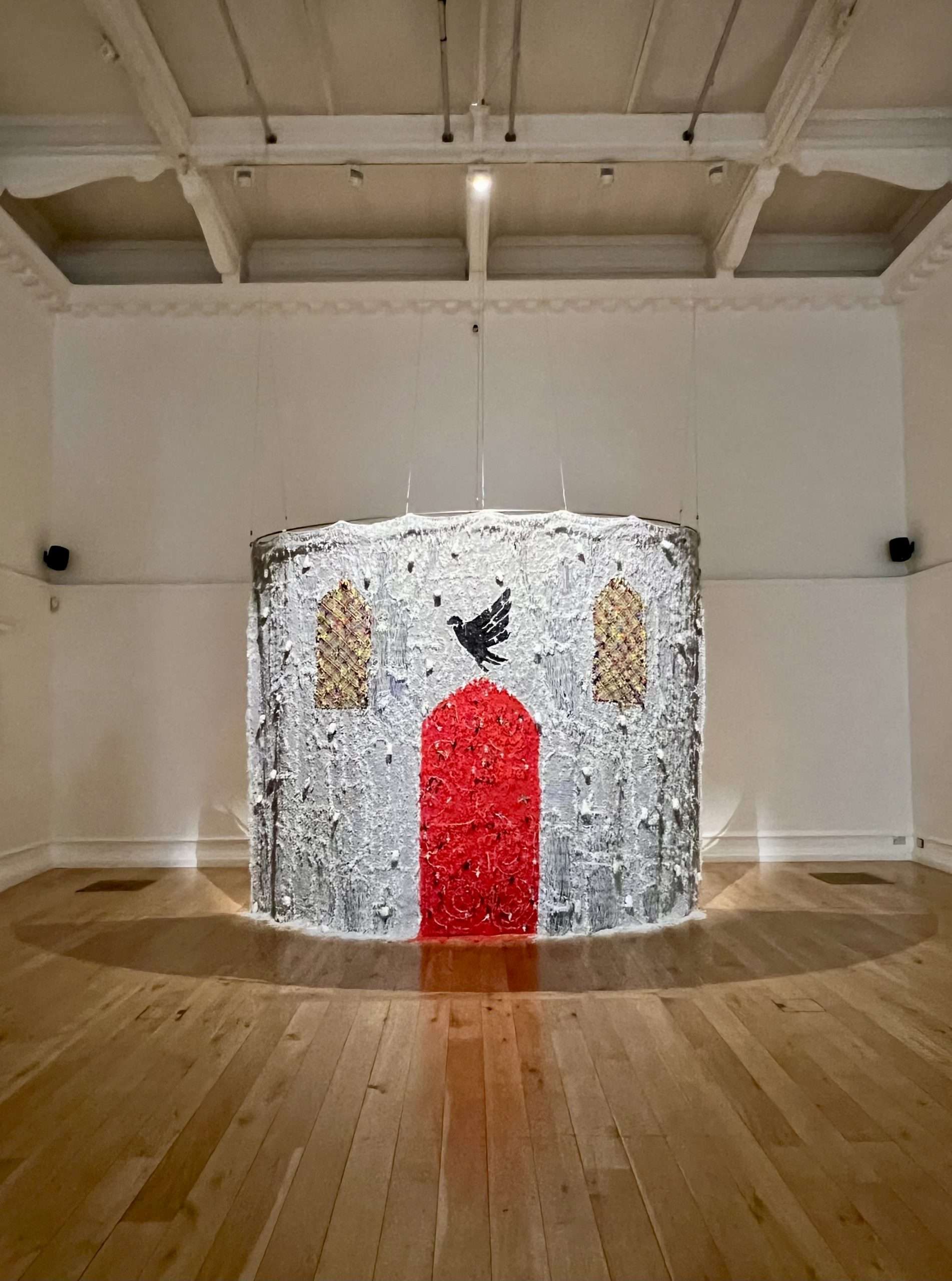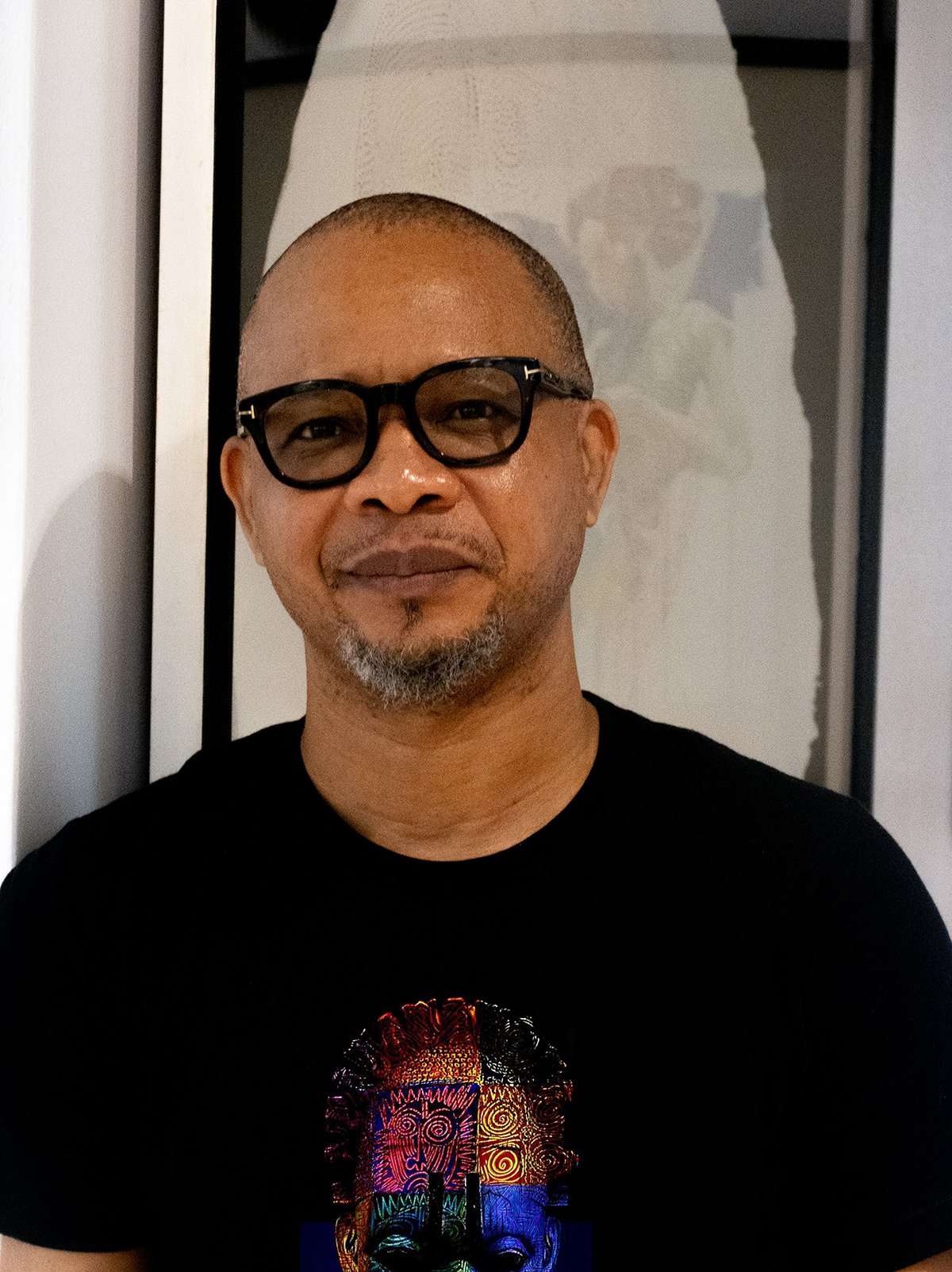
Features #22 - August 2023
VICTOR EHIKHAMENOR IN CONVERSATION WITH NICOLAS VAMVOUKLIS
Victor, I remember first seeing your work at the Venice Biennale in 2017, where you represented Nigeria. It was actually the country’s debut at this major art event. How has your work evolved since then?
That seems like a hundred years ago already. I would say much has changed since then, but I still maintain the core essence of what my art is about. A significant and discernible transition is in my choice of materiality. My experience in Venice resulted in a totemic shift to start exploring Catholic rosaries in my works. This has expanded my thematic preoccupation and the audience in the past years. The majority of my large-scale installations are now rosary based, addressing the duality in our belief system.
I read in your conversation with Ginanne Brownell that you are an information-technology specialist, besides being an artist and social activist. How do your studies in technology management inform your overall practice?
It’s a bit hard to say or even describe that correlation, but I know it’s there. In any case, one of the vital things I bring into my artistic practice from this IT background is the saying “innovate or die.” I feel I am constantly searching for some form of newness in my old ways, an endeavor that is usual but peculiar at the same time.
I would like to know about the creative hub “Angels and Muse” you have initiated to support contemporary African art.
“Angels and Muse,” which I founded in 2018, is a thought laboratory in Lagos and now also in another location in Benin City. It helps facilitate cross-disciplinary conversations on art, literature, and culture. We host artists, photographers, writers, curators, as well as professionals from other disciplines. Last year we were hosted at MoMA for a photography workshop towards a major contemporary Nigerian photography exhibition that opened in New York this previous May. It’s about giving back to my community that nurtures my work.
You are currently part of Onassis AiR, an international artistic research and residency program in Athens. What is your experience of the Greek capital?
My experience here has been incredible. The energy is palpable and inspirational. Living in a historical place as such with a deep cultural environment makes me feel at home. Everywhere I turn has a form of history; it’s almost unreal. The Onassis AiR staff have been the most amazing. They have made my residency productive beyond my imagination. I had the opportunity of traveling outside Athens to places like Ioannina and Hydra, where I expanded my research even more. I have been invited to numerous art openings that were really interesting. All in all, my artistic and social experience here has been unique and robust.
Could you briefly introduce me to your fellowship project?
My starting point for this residency was Sophocles’ “King Oedipus,” a Greek classic, as well as a Nigerian playwright’s reference to the original play. The Nigerian play “The Gods Are Not To Blame” was written by Ola Rotimi in 1968; almost every student before and after my generation has read it. I decided to dig deeper into both playwrights’ treatment of fate, history, memories, mythology, and places in a visual way. It’s been quite a journey for me.
The title of your research, inspired by the homonymous play of Rotimi, leads me to a last question: what is your idea of spirituality?
He who can clearly define spirituality may not have experienced it. I wish I had the right words to describe what spirituality means, except that it’s a core essence of human existence. I can only hope spirituality manifests itself in my body of work.
* Special thanks to Onassis AiR and Nefeli Myrodia.
PHOTO CREDITS
Victor Ehikhamenor
Onassis AiR Open Day #7
©Panos Kefalos for Onassis Stegi
Victor Ehikhamenor
Photo: Emmanuel Iduma
Victor Ehikhamenor
Cathedral of the Mind,2023
Rosary beads, rhinestones with bronze totem and thread on lace textile Lagos, Peckham, Repeat: Pilgrimage to the Lake, South London Gallery Courtesy of Victor Ehikhamenor Studio
Victor Ehikhamenor
Ododo in Royal Palace Grounds & The Fulfillment of a Divine Prophecy,2022
Rosary beads and thread on lace textile with bronze Art X Lagos
Courtesy of Victor Ehikhamenor Studio
Victor Ehikhamenor
Biography of the Forgotten Ones, 2017
Mirrors, bronze statuettes, acrylic and thread on canvas Nigerian Pavilion, Venice Biennale
Courtesy of Victor Ehikhamenor Studio
Victor Ehikhamenor
Onassis AiR Open Day #7
©Panos Kefalos for Onassis Stegi


































